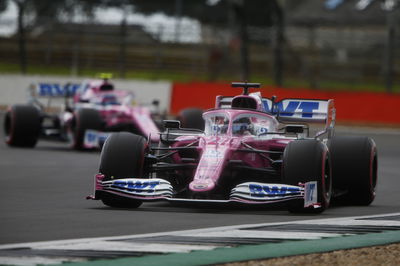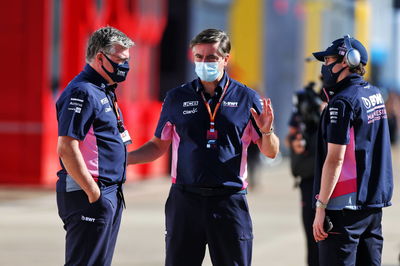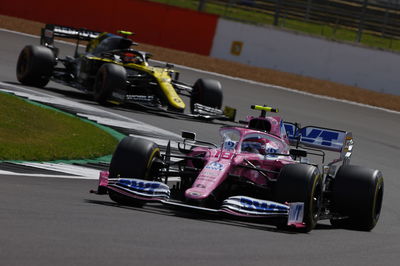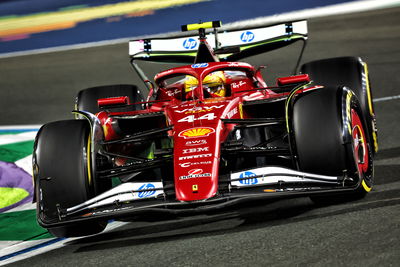Why Racing Point won’t have to change F1 brake ducts

It would be “very unreasonable” to expect Racing Point to redesign the brake ducts on its 2020 Formula 1 car, according to FIA head of single-seater technical matters Nikolas Tombazis.
The Silverstone-based outfit was reprimanded, docked 15 constructors’ championship points and fined €400,000 after the FIA upheld Renault’s trio of protests against its brake ducts.
A lengthy document released by the FIA on Friday morning ahead of this weekend’s 70th Anniversary Grand Prix concluded that Racing Point’s brake duct design was in breach of the design rules due to the principal designer being Mercedes.
Racing Point has subsequently lost 7.5 championship points for each car protested in the Styrian Grand Prix - equating to 15 overall - as well as its hefty fine. It received reprimands for using the brake ducts in the following races in Hungary and Great Britain.
As a result, it has gone from 42 points to 27 and has fallen to sixth place in the constructors’ championship, behind Renault, with the French manufacturer sitting on 32 points.
Asked if Racing Point will need to redesign its brake ducts, Tombazis replied: “On the basis of the stewards’ decision, I think the answer to that question is no.
"And I think there is plenty of reason for that. It would be very unreasonable to expect Racing Point to forget their knowledge and to design again from a clean sheet of paper from scratch, because designs never work that way.
"They always start with existing knowledge, so somehow to expect them to do something completely different would be very unreasonable.
“It would also be very difficult for us to ascertain whether something is sufficiently different or not, so that would be quite an unreasonable expectation.”
Racing Point team principal Otmar Szafnauer said the outcome had left his side “bewildered” but conceded the fact it can continue to run its RP20 without alteration is “good news”.
Crucially for Racing Point, its breach related to the sporting regulations and not the technical regulations, meaning that its cars were not disqualified.

Explaining the nature of Racing Point’s punishment, Tombazis said: “The stewards took the view that as it was the process that was at fault, and not the components themselves.
“In the first of these process, the Styria Grand Prix, they applied the sanction of championship points and financial sanction.
“They deemed that sanction covered all the issues with the process, and therefore while in the subsequent races the protest was accepted as justified they felt it didn’t require further sanction and just gave Racing Point a reprimand for the subsequent races.
“As it was a championship-related penalty the points deducted from Racing Point, not specifically the points won at the Styrian Grand Prix, they were deducted 15 points. On the financial side, 400,000 Euros.”
Tombazis said he could completely understand why Renault opted to protest, admitting that certain aspects of the regulations were not “completely clear”.
“I think there are areas that this process demonstrated to us that certain aspects of the rules were not completely clear,” he conceded.
“That basically is a big debate was had over what is really a design and what happens when pieces change status. Renault were entirely entitled to question this situation and the way to do that is to protest at the race.”
Tombazis said that the transition of listed and non-listed parts created mitigating circumstances for Racing Point, whom he said were “completely transparent in the process”.
“There’s been no underhand actions or hidden agendas or anything,” he said.
“They interpreted the rules as they thought was correct but clearly the change of status of the brake ducts from listed to non-listed between the two years created these unprecedented circumstances which pushed us to define exactly what is a design and so on.
“I have to also say that Racing Point could have designed a very similar end result if they had to use photographs for the brake ducts as they had to for the rest of the car. And that is also taken into account in the proportionality of the penalty.”
Racing Point has a 24-hour window to appeal the decision and is currently weighing up whether to do so or not.












